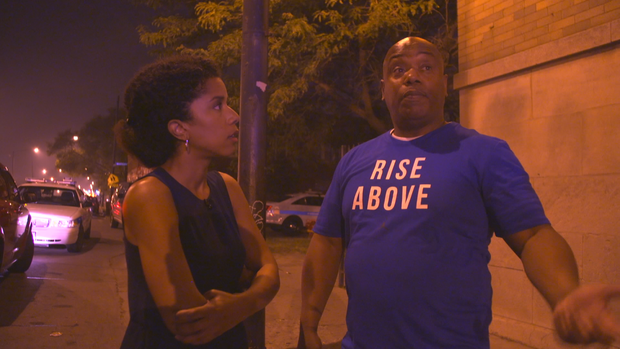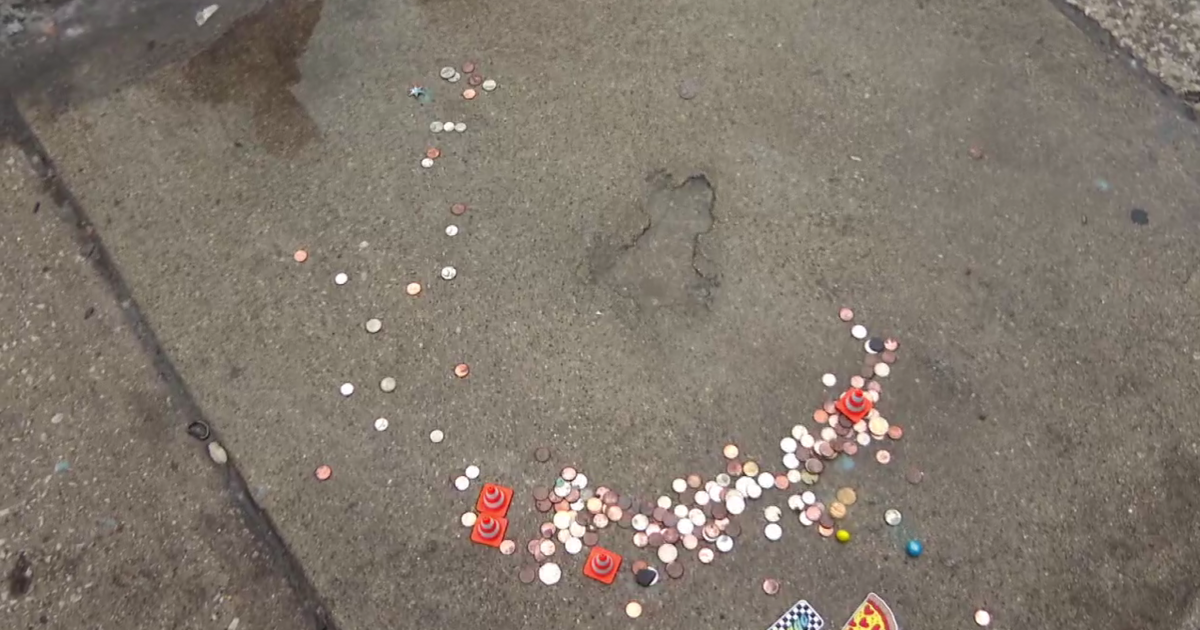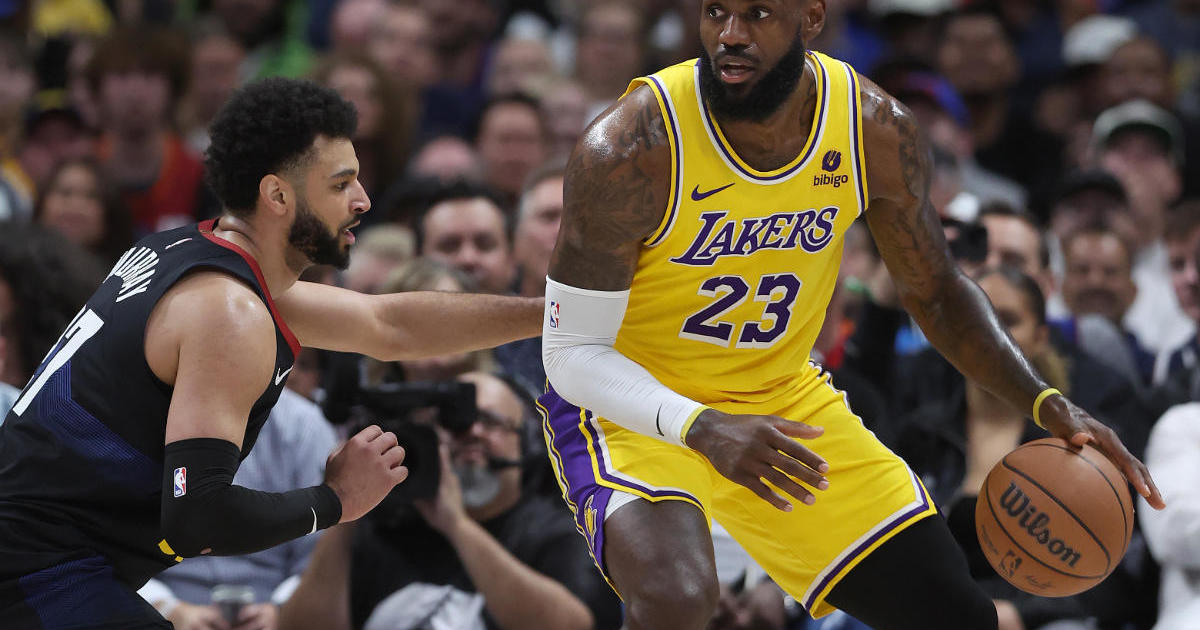Behind the Lens: Guns of Chicago
This segment aired on Monday, Aug. 7 at 10 p.m. ET/PT. See more stories from "CBSN: On Assignment."
I've lived in Chicago for the majority of the past three years. There's something about that skyline that frames the city downtown -- it glistens as the sun bounces off of the Chicago River. Michigan Avenue pulses with the constant march of shoppers. And then there's the lakefront, with bike paths, beaches, and farmer's markets -- the ingredients for a perfect summer weekend.
But there's another Chicago that makes headlines all to often, and when it does, it's reduced to numbers. Like 35: the number of people shot this weekend within the city limits. Or 9: the age of Tyshawn Lee, lured into an alley and assassinated in 2015 over his father's gang connections. Or 4,331: the staggering total of shooting victims in 2016. Last year was the city's bloodiest in nearly two decades. This year shootings are down 13 percent, but the silver lining is flimsy -- murders are up 4 percent.
Chicago police have a daunting task. They're continuously trying new strategies to get a handle on the violence. They've installed audio devices in high-crime areas that listen for the sound of gun shots. When a bullet is fired, officers in a command center pull up cameras near the shooting to look for suspects while beat officers make their way to the scene. The high-tech police work gives detectives a head start. The police have also stepped up efforts to crack down on guns, by working with federal agents at the Bureau of Alcohol, Tobacco, Firearms and Explosives (ATF) and state partners. They've confiscated more than 5,000 guns since January alone.
But the guys on the streets told us that the flow of guns is an inexorable torrent. They said they'd rather be caught with a gun by police than without one by their rival. If their gun is seized, they say they can replace it in a "snap." In Chicago, a gun can be bought as cheaply as the seller's desperation for cash dictates. "You can get a gun for $40 from a crackhead," one man told us.
We asked the heads of the police department and the ATF's Chicago division how to go beyond the physical act of taking guns off the streets. How do you change the mentality that sees guns as a necessity? It's a mindset we heard about constantly: these guys don't feel safe unless they're armed. Both Superintendent Eddie Johnson and ATF Special Agent in Charge Celinez Nunez said that a change in culture is required.
But the culture on the streets is strong. Two guys we met in a South Side alley were proud to show us their weapons. They brazenly showed off their pistols, waving them around and pointing them into our camera lenses thinking it would be a good camera angle, their fingers uncomfortably close to the triggers. Despite their boastfulness, they said they wished they didn't need guns but, in Chicago, there's always a target on your back -- maybe from something you did, or something someone you're associated with did that you don't even know about. They agreed that everyone should put the guns down, but quickly added that they can't be the first to do it.
When we interviewed young men, their eyes reflexively tracked every passing car, and they would look over their shoulders constantly. Two guys we met who go by Bamm and Fatzmack said their hyper-vigilance was more for our sake than theirs -- they didn't want anything to happen to us if a shooting broke out.
Bamm told us he first sold crack at seven years old because he wanted money to buy doughnuts. He said at that young age he learned a simple formula from those around him: selling the stuff in the little baggies = cash. Nineteen years later, he has three kids of his own. I met two of them and they were the most adorable, curious little boys you could ever come across. They were riding their bikes along with what seemed like an army of 5- to 7-year-olds in the parking lot of their housing complex. Bamm told us he wants something better for his kids. He wants to break the cycle that he got swept up in as a child. But children live what they learn, and Bamm's children are growing up a similar environment to their father.
Our story focuses on young men who say they're caught in a world where you hustle for money, defend yourself with guns, and survive at all costs. But plenty of residents from the south and west sides live differently. Kenny Doss is 22 years old from Englewood on the South Side. It's one of the most notorious neighborhoods in the city.
He organises a basketball tournament called "Bridging the Gap," a bid to fight violence through sport. His program gives kids and teens something positive to do during the long hot summer days. But it also goes beyond that. The tournament gives them a reason to interact with (and befriend) guys from other "crews," with whom they might otherwise have altercations. We spent two afternoons at that outdoor basketball court.
We met a woman named Nikki who organizes a yearly back-to-school parade. We talked to old-timers about how "kids these days" don't play by the same unwritten rules that gang members did in their day. We were also charmed by the children we shared the stands with while watching the game, like 11-year-old Avion. He told me he could tell the difference between the sound of fireworks and gunfire. Then he added casually that two of his friends, both 12 years old, had been grazed by bullets. There was a lot of wisdom behind his young eyes, and he overflowed life and potential. His mother works nights and tries to get some sleep during the day while caring for her five children.
We were welcomed so warmly by this community. Young men who have been arrested for murder opened up to us about their worries, fears, and dreams. They're trying to move the narrative away from the statistics that haunt their neighborhood, to the stories of people like Kenny Doss who are raising it up.




